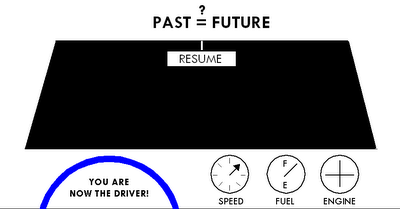I often tell clients that "knowing without acting on your knowledge" is
exactly the same as "NOT knowing at all."
In fact, it's worse, because you lost time reading (or attending a course or seminar)!
Half a dozen people so far have shared with me their difficulty in putting their knowledge into action. They asked me, "At what point should I stop reading?"
I confess I've had that problem before too. It's only recently that I've realized that "life rewards action, not knowledge."
Similarly, a person can take a language course, yet if she doesn't practice it, she will RAPIDLY forget everything! I know from experience: I aced two courses in Spanish, and yet cannot say anything else but "Mi casa es su casa"!!
If you have the problem of not being able to act on your knowledge, you are not alone. It's such a common weakness that Edward de Bono, the creativity guru, in fact coined a special word -- operacy -- to encourage people to focus on developing that important ability. He wrote:
The idiom of education is that it is enough to build up the information base and that action is then easy. It is not. The skills of action are every bit as important as the skills of knowledge. That this is not recognised in education is a tragedy. For convenience I have coined the term 'operacy', which is derived from 'operate' and 'operational' and thus indicates 'the skill needed for doing'. I believe that operacy should rank alongside literacy and numeracy as a major aim of education.
Source: http://www.avec.com.au/esprit/concept.html
I think another word should be coined for "the skill needed to get desired results."
Let's use for now the word "resultancy."
In business, there is nothing more important than resultancy. You have to get the right results. The mission-critical results. If not, you won't survive.
This is why I created the Business Model Workout workshop (www.businessmodelworkout.blogspot.com). I used the framework, albeit in a premature format, to generate more than $100,000 in revenues in a few months for a a company a while ago, when I was still an employee. I used the framework again for three years, while I was running my marketing communications firm. This BMW framework works as a focus enabler that drives the entrepreneur to pay attention to the right performance indicators, and nothing else. No wonder this workshop is getting so popular, even with employees and people considering going into business.
But resultancy (the skill needed to get desired results) is not just for business people. Employees must master that skill also. In fact, anyone who truly cares about performance, should master resultancy.
And people -- at least the ambitious kind of people -- are beginning to realize the importance of resultancy. That's why coaches today, in so many fields, are becoming very popular.
A coach is paid to help you get the results you aim for. This is why coaches often will interview a potential client to see if he/she has "coachable goals."
The saying goes, "When the student is ready, the master appears."
Similarly: "When the performer is ready, the coach appears."
But realistically, since not everyone can afford to have a coach, it is perhaps best to learn about self-coaching.
More on that later.




